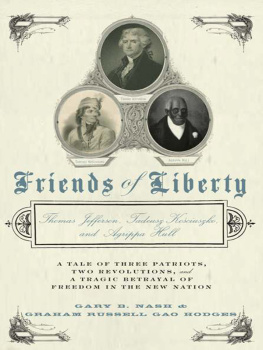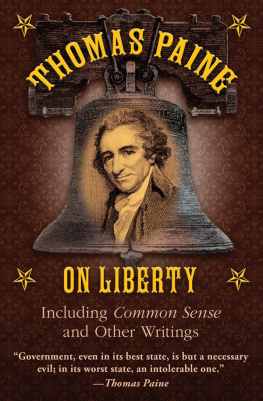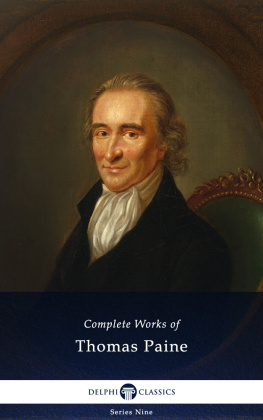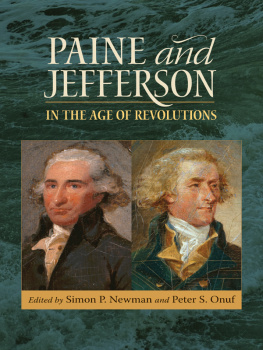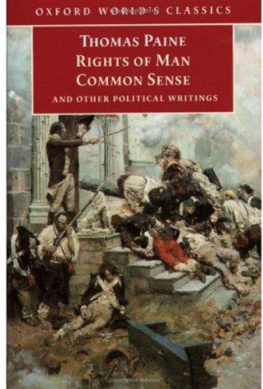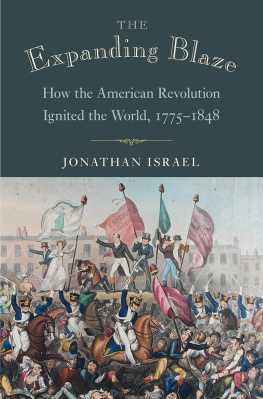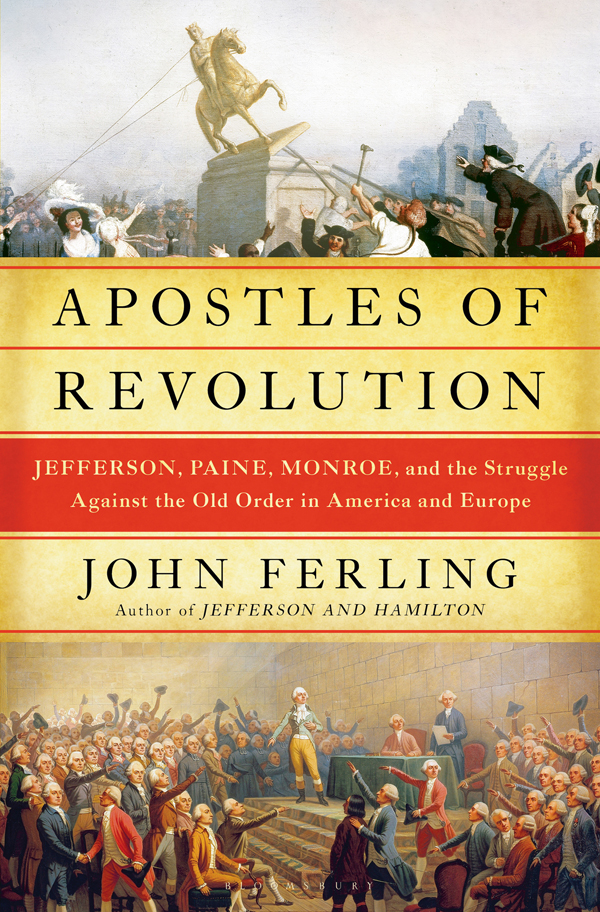Contents
Guide
Pagebreaks of the print version


To Bill Morton
Physician, lawyer, author, and friend
BY THE SAME AUTHOR
Whirlwind: The American Revolution and the War That Won It
Jefferson and Hamilton: The Rivalry That Forged a Nation
Independence: The Struggle to Set America Free
The Ascent of George Washington: The Hidden Political Genius of an American Icon
Almost a Miracle: The American Victory in the War of Independence
Adams vs. Jefferson: The Tumultuous Election of 1800
A Leap in the Dark: The Struggle to Create the American Republic
Setting the World Ablaze: Washington, Adams, Jefferson, and the American Revolution
John Adams: A Life
The First of Men: The Life of George Washington
Struggle for a Continent: The Wars of Early America
A Wilderness of Miseries: War and Warriors in Early America
The Loyalist Mind: Joseph Galloway and the American Revolution


CONTENTS
Some who were part of the protest against Great Britain before 1776 never wanted the American colonies to leave the British Empire. Some who wished for independence in 1776 were soon horrified by the extent of the domestic changes that accompanied the break with the mother country. Some among Americas revolutionaries saw American independence as only an essential first step in the realization of a social and political transformation that could never be achieved so long as the American colonies remained part of the British Empire.
Thomas Jefferson, Thomas Paine, and James Monroe were among the latter, and their involvement in the American Revolution, and subsequently in the French Revolution as well, is the focus of this book. Of course, many other colonists also thought that England was irredeemably corrupt and that the American colonies were displaying symptoms of the corruption that had plunged the mother country into decline. There were others, too, who longed for the ideals of the American Revolution to spread to England and Europe, sparking far-reaching reform movements or revolutions that would sweep away the evils inherent in the old order of monarchical and aristocratic rule. Later, after the American Revolution had succeeded, there were others besides Jefferson, Paine, and Monroe who resisted what they saw as a counterrevolution that threatened the democracy and egalitarianism unleashed in 1776.
So, if there other apostles of revolution, why are Jefferson, Paine, and Monroe the cornerstones of this book? No individual of their era strove harder than these three to bring an end to a world where wealth and power were restricted to the few. Different as they were, the three shared radical visions of a democratic future, a new age purged of entrenched privilege. To a degree seldom seen among their contemporaries, they understood the harmful ramifications of a grossly unequal distribution of wealth. They sought a world in which individuals were judged according to their merits, not on the social strata into which they were born. While Jefferson, Paine, and Monroe championed less intrusive governments, each nevertheless believed that governments could enhance the opportunities available to ordinary citizens, and Jefferson and Paine articulated plans through which the government could increase individual independence, freedom, or security. Each struggled to create a world in which people would be liberated from age-old superstitions through the pursuit of reason and the untrammeled freedom of thought and expression. Each embraced the idea of progressthough perhaps not the notion of humankinds perfectibilityand presumed that the conditions in which humans lived could be improved. Each literally risked his life in pursuit of these ideals. Becoming a revolutionary is not always a safe undertaking. Paine experienced combat in the Revolutionary War and came very close to dying during the Reign of Terror in 1794 in France. Monroe fought in several engagements during the War of Independence and suffered a near-fatal wound at Trenton in 1776. Jefferson was almost captured by the kings soldiers in 1781, and would have faced a life-threatening imprisonment if he had been taken captive.
Jefferson and Paine made major contributions to the lives and outlooks of their contemporaries, and their writings remain influential today. Jeffersons Declaration of Independence captured the spirit of his countrymen in 1776, and for generation after generation of Americansand for many non-Americans as wellit has encapsulated the principles of human rights and freedom. Thereafter, Jefferson collaborated with French reformers in the preparation of the enduring Declaration of the Rights of Man and of the Citizen, and in the 1790s he led a political party that battled antidemocratic forces in the United States. No writer in the twenty years after 1776 came close to reaching the vast numbers that read Paines books and essays, and none rivaled the cutting-edge ideas for which he was renowned. Monroe was something of an everyman among those shaped by the American Revolution. Only eighteen in 1776, Monroe was radicalized by the rhetoric of the American Revolutionincluding ideas expressed by Jefferson and Paineand by his exemplary and often dangerous military service in the Revolutionary War. His attachment to the revolutionary ideals, and his propulsive ambition, motivated and steeled him to fight the foes of the spirit of 1776 and to see the revolutionaries in France as comrades.
Jefferson, Paine, and Monroe were real revolutionaries who longed for a genuine revolution that would lead to profound alterations in Americas fabric. For them, and the most radical of Americas insurgents, the American Revolution was the means through which to escape royal and aristocratic rule, replace Britains oppressive dominion with governments in which the people were sovereign, free the colonists from the incessant warfare of the British Empire, and set Americans on a path toward equal rights and opportunities.
Jefferson, Paine, and Monroe traveled different routes on the road to the revolution. Jeffersons years in college and his subsequent studying and reading, as well as his experiences while a provincial assemblyman, pulled together his thinking. By his thirtieth birthday, Jefferson was convinced that Virginia was victimized in myriad ways through its connection with London. Paines radicalism grew from untold hours of listening to the lectures and debates among activists in the English reform movement. Monroe was influenced by the force of the stirring insurgent rhetoric in the air as he came of age in the mid-1770s, and like the other two, he was driven by a gnawing ambition for recognition and acclaim.
When independence was declared, Paine was the most radical of the three. Paine not only rejoiced in an American Revolution that he expected to usher in great changes, but also he hoped it would cleanse England and the Old World of monarchy, titled nobilities, and the fallacies and superstitions that sustained the old order. He dreamed that the American Revolution was the first step in the creation of a new world free of autocratic governments, oligarchical elites, widespread inequality and deprivation, and the seemingly perpetual menace of war. He envisioned the birth of a world in which the poorest would be elevated to a more comfortable station and that at long last they, too, would enjoy the natural rights that were their due. In time, Jefferson and Monroe caught up with Paines thinking, and so, too, did many other Americans who were radicalized by the Revolutionary War and the revolutionary credo made widely known at least in part through the writings of Jefferson and Paine.


